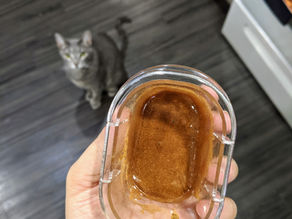Making Our Dairy-Free, Gluten-Free Pie Crust
- Amanda MacGregor

- Feb 1, 2017
- 4 min read
Updated: Mar 16, 2024
The foundation of any pie recipe is a good pie crust! Get a flaky, buttery crust without using any butter!

It may come as no surprise at all that we LOVE pie! Hence our Pi Day wedding.
We are known to serve a pie, savory or sweet, at almost any holiday or gathering. We have our Irish Sweet Potato Pie for St. Patrick's Day, a spinach quiche recipe that goes perfectly at brunch, and a Berry Galette for summer gatherings. However, we shine the brightest come autumn with our apple pie, pumpkin pie, sweet potato pie bites, and pecan pie!
Seriously, we love pie! We even announced our wedding date on a pie.

For all our pie recipes, CLICK HERE!
A good pie crust is necessary for any pie. It's the foundation. This recipe uses a few simple ingredients: a blend of 3 gluten-free flours, sea salt, starch, olive oil, dairy-free milk, and an egg.
AD
The secret to our flaky crust? It's using olive oil instead of butter!
The crust itself will be a little more delicate to roll out than other traditional pie crust recipes, but with a little carefulness and patience, you can form the crust into exactly what you need.
It also comes together very quickly. I use my stand mixer with a paddle attachment. I start by adding all the dry ingredients and pulsing until blended. Then, in the same bowl, I add the oil, milk, and egg and mix on a low setting until the mixture forms into a ball.



Tips & Tricks for our Dairy-Free Gluten-Free Pie Crust Recipe:
It looks and tastes like a traditional pie crust, so friends and family won't be able to tell it is gluten-free!
This recipe is perfect for beginners in the gluten-free kitchen. There are no steps for pre-chilling the ingredients or equipment, and you don't have to worry about overworking the dough since there is no gluten. There is also no need for pie weights! This crust does not slump and slide down the sides of the pie dish; it stays exactly where you put it. This brings us to the next point...
The dough is very forgiving! I tear off pieces of dough to patch holes or imperfections. I also use water or oil when making my crumps to restore any dried-out or cracking areas.
No need to oil or grease your pie dish. Thanks to the olive oil in the recipe, this is not required.
If you want to make the pie crust sweeter, add 1 to 2 teaspoons of your favorite sugar, such as date or cane sugar, to the dry ingredients. I don't do this since I enjoy the crust as is, but for those with a sweeter sweet tooth than me, this may do the trick for you.
To keep this pie crust nightshade-free and corn-free, we use arrowroot starch. However, if you can and prefer, you can replace that ingredient 1-for-1 with potato starch or corn starch.

Use it for every savory or sweet pie you are making, and you won't be sorry about how the result turns out...or tastes!
For our traditional homemade pie crust recipe that contains gluten flour and butter, CLICK HERE!
Making Our
Dairy-Free Gluten-Free Pie Crust
Ingredients
½ cup all-purpose gluten-free flour (we use The Greater Knead's)
½ cup cassava flour
½ cup oat flour
½ teaspoon sea salt
1 tablespoon arrowroot starch, or a powder starch of your choosing
¼ cup olive oil
¼ cup dairy-free milk (we used almond milk or oat milk)
1 egg
AD
Directions
Using a Stand Mixer:
In the stand mixer bowl, add the 3 flours, salt, and starch.
Using the paddle attachment, pulse the dry ingredients until they are fully incorporated. We suggest pulsing over just letting it mix in a low setting as the mixture will create a cloud of flour/starch; pulsing prevents the cloud from settling over the bowl and onto the stand mixer (making for an easier clean up later).
Add the wet ingredients to the bowl. Still using the paddle attachment, mix on a low setting until the mixture forms a dough ball.
Mixing by hand:
In a large bowl, add the 3 flours, salt, and starch. Using a whisk, mix the dry ingredients until they are fully incorporated.
Add the milk and oil to the bowl. In the measuring cup, crack the egg and beat before adding it into the bowl as well.
Using a wooden spoon, mix until the ingredients begin to blend and form a dough ball.
Tip: If the dough is too wet, feel free to sprinkle in extra flour to help stiffen the mixture.
Assembling the dough:
Press and shape the crust into the pan you plan on using and place it into the refrigerator while working on the filling.
Once your filling is complete, remove the pie crust-lined pan from the refrigerator and pour in your filling. Bake based on your pie's recipe instructions.

















